Central Auckland, East Auckland, North Auckland, South Auckland, West Auckland > Private Hospitals & Specialists >
Endoscopy Auckland
Private Service, Endoscopy (Gastroenterology), General Surgery, Gastroenterology
Description
Endoscopy Auckland is a stand-alone facility dedicated to the investigation and treatment of problems related to the gastrointestinal tract.
We have brought together the skills and experience of leading specialists, armed with the most advanced technology, assisted by experienced and well trained nursing staff, to provide a service of quality and efficiency.
Our modern and purpose-designed facility is located near central motorway ramps for easy access.
Services at Endoscopy Auckland include:
- Gastroscopy
- Colonoscopy
The visits to your specialist will be at their consulting rooms - your visit is not for a consultation.
What is Endoscopy?
Endoscopy is the process of looking inside body cavities, using a very tiny camera attached to the end of a long, flexible tube (endoscope). Images from the camera are sent to a monitor screen so that the doctor can direct the movement of the endoscope. It is also possible to pass different instruments through the endoscope to allow small samples or growths to be removed.
Colonoscopy is an endoscopy of the large bowel (colon). Gastroscopy is an endoscopy of the oesophagus, stomach and duodenum.
Endoscopy allows a doctor to make a diagnosis either by seeing directly what is causing the problem or by taking a small tissue sample for examination under a microscope (biopsy).
Endoscopy can also be used as a treatment such as for the removal of polyps or dilatation of the oesophagus (food pipe).
Consultants
-

Mr Philip Allen
Surgeon
-
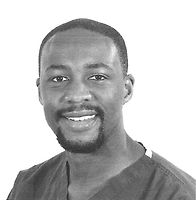
Dr Wal (Wasilwa) Baraza
Surgeon
-
Mr Peter Carr-Boyd
Surgeon
-

Mr Riccardo Cirolli
Surgeon
-
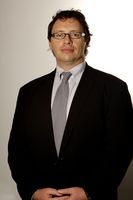
Mr John Dunn
Surgeon
-

Associate Professor Alan Fraser
Gastroenterologist
-
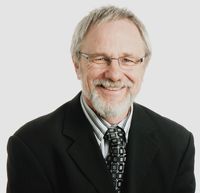
Associate Professor Mark Lane
Gastroenterologist
-

Dr Helen Myint
Gastroenterologist
-
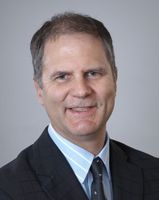
Dr Stephen Persson
Gastroenterologist
-

Dr Toby Rose
Gastroenterologist
-
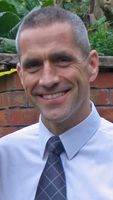
Dr David Rowbotham
Gastroenterologist, Hepatologist and Endoscopist
-

Dr Elena Ryniker
Gastroenterologist & Endoscopist
-

Dr Henry Wei
Gastroenterologist
-
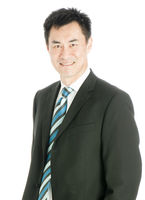
Dr Philip Wong
Gastroenterologist, Hepatologist and Endoscopist
Doctors
-
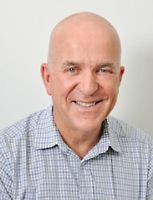
Mr Graeme Washer
Surgeon
Referral Expectations
Patients are referred to Endoscopy Auckland by their GP or specialist.
Appointments can be made for a procedure by phoning Endoscopy Auckland between 8am and 5pm Monday to Friday.
Endoscopy Auckland is an Affiliated Provider with Southern Cross - if you hold this type of medical insurance, Endoscopy Auckland will process prior approval on your behalf. To do this we require your membership number and a copy of your referral letter.
Fees and Charges Categorisation
Fees apply
Fees and Charges Description
For an estimate of charges for your procedure please phone the Administration team between the hours of 8am and 5pm Monday to Friday.
Endoscopy Auckland is an Affiliated Provider with Southern Cross which means we process your prior approval and invoice for you. To do this your membership number and a copy of your referral letter are required prior to your appointment. If you have medical insurance with other insurance companies, we recommend that you contact the insurance company to arrange prior approval. Otherwise, and if you are not insured, your account will be required to be paid in full prior to discharge.
Procedures / Treatments
Gastroscopy allows examination of the upper part of your digestive tract i.e. oesophagus (food pipe), stomach and duodenum (top section of the small intestine), by passing a gastroscope (long, flexible tube with a camera on the end) through your mouth and down your digestive tract. Images from the camera are displayed on a monitor screen. Sometimes a small tissue sample (biopsy) will need to be taken during the procedure for later examination at a laboratory. Gastroscopy may be used to diagnose peptic ulcers, tumours, gastritis or any other abnormalities of the upper digestive tract. Complications from this procedure are very rare but can occur. They include: false negative; bleeding if a biopsy is performed; allergic reaction to the sedative or throat spray; perforation (tearing) of the stomach with the instrument (this is a serious but rare complication). What to expect You are not able to eat or drink anything for 6 hours before your gastroscopy. When you are ready for the procedure, the back of your throat will be sprayed with local anaesthetic. You will also be offered medication (a sedative) that will make you sleepy and relaxed. This will be given via a leur in a vein in your arm or hand. The gastroscopy will take approximately 15 minutes, but you will probably sleep for another short period of time. Staff will monitor you in the recovery area while you sleep off the effects of the sedative. You will be given a light snack before leaving the unit. Because you have been sedated (given medication to make you sleep) it is important that you arrange for someone else to drive you home (it is illegal for you to drive) and stay with you the night of your procedure. You will be at Endoscopy Auckland for approximately 1.5 - 2 hours. If biopsies are taken for examination, your GP will be sent the results in approximately 1 week. For more information, please click here.
Gastroscopy allows examination of the upper part of your digestive tract i.e. oesophagus (food pipe), stomach and duodenum (top section of the small intestine), by passing a gastroscope (long, flexible tube with a camera on the end) through your mouth and down your digestive tract. Images from the camera are displayed on a monitor screen. Sometimes a small tissue sample (biopsy) will need to be taken during the procedure for later examination at a laboratory. Gastroscopy may be used to diagnose peptic ulcers, tumours, gastritis or any other abnormalities of the upper digestive tract. Complications from this procedure are very rare but can occur. They include: false negative; bleeding if a biopsy is performed; allergic reaction to the sedative or throat spray; perforation (tearing) of the stomach with the instrument (this is a serious but rare complication). What to expect You are not able to eat or drink anything for 6 hours before your gastroscopy. When you are ready for the procedure, the back of your throat will be sprayed with local anaesthetic. You will also be offered medication (a sedative) that will make you sleepy and relaxed. This will be given via a leur in a vein in your arm or hand. The gastroscopy will take approximately 15 minutes, but you will probably sleep for another short period of time. Staff will monitor you in the recovery area while you sleep off the effects of the sedative. You will be given a light snack before leaving the unit. Because you have been sedated (given medication to make you sleep) it is important that you arrange for someone else to drive you home (it is illegal for you to drive) and stay with you the night of your procedure. You will be at Endoscopy Auckland for approximately 1.5 - 2 hours. If biopsies are taken for examination, your GP will be sent the results in approximately 1 week. For more information, please click here.
Gastroscopy allows examination of the upper part of your digestive tract i.e. oesophagus (food pipe), stomach and duodenum (top section of the small intestine), by passing a gastroscope (long, flexible tube with a camera on the end) through your mouth and down your digestive tract. Images from the camera are displayed on a monitor screen. Sometimes a small tissue sample (biopsy) will need to be taken during the procedure for later examination at a laboratory.
Gastroscopy may be used to diagnose peptic ulcers, tumours, gastritis or any other abnormalities of the upper digestive tract.
Complications from this procedure are very rare but can occur. They include: false negative; bleeding if a biopsy is performed; allergic reaction to the sedative or throat spray; perforation (tearing) of the stomach with the instrument (this is a serious but rare complication).
What to expect
You are not able to eat or drink anything for 6 hours before your gastroscopy. When you are ready for the procedure, the back of your throat will be sprayed with local anaesthetic. You will also be offered medication (a sedative) that will make you sleepy and relaxed. This will be given via a leur in a vein in your arm or hand.
The gastroscopy will take approximately 15 minutes, but you will probably sleep for another short period of time. Staff will monitor you in the recovery area while you sleep off the effects of the sedative. You will be given a light snack before leaving the unit.
Because you have been sedated (given medication to make you sleep) it is important that you arrange for someone else to drive you home (it is illegal for you to drive) and stay with you the night of your procedure. You will be at Endoscopy Auckland for approximately 1.5 - 2 hours.
If biopsies are taken for examination, your GP will be sent the results in approximately 1 week.
For more information, please click here.
Colonoscopy is the examination of your colon (large bowel) using a colonoscope (long, flexible tube with a camera on the end). The colonoscope is passed into your rectum (bottom) and then moved slowly along the entire colon, while images from the camera are displayed on a television monitor. The procedure takes from 10 minutes to an hour. Sometimes a small tissue sample (biopsy) will need to be taken during the procedure for later examination at a laboratory. A colonoscopy may help diagnose conditions such as polyps (small growths of tissue projecting into the bowel), tumours, ulcerative colitis (inflammation of the colon) and diverticulitis (inflammation of sacs that form on the walls of the colon). Colonoscopy may also be used to remove polyps in the colon. Risks of a colonoscopy are rare but include: intolerance of the preparation; false negative; bleeding if a biopsy is performed or polyp removed; allergic reaction to the sedative; and perforation (tearing of the bowel wall). What to expect It is important that the bowel is completely empty before the procedure takes place. This means that you may require a low fibre diet on the day before, and will have to take some oral laxative medication (to clear the bowel - this will give you diarrhoea). Administration staff will advise you of specific preparation prior to your appointment. When you are ready for the procedure, you will be given medication (a sedative) to make you relaxed and sleepy. This will be given by via a leur in your arm or hand. The colonoscopy takes between 15 – 30 minutes. After this you will be monitored in the recovery area while you sleep off the effects of the sedative. Because you have been sedated (given medication to make you sleep) it is important that you arrange for someone else to drive you home and stay with you the night of the procedure. Some patients may experience discomfort after the procedure, due to air remaining in the colon. It is important that you pass the air to minimise the discomfort. For more information, please click here.
Colonoscopy is the examination of your colon (large bowel) using a colonoscope (long, flexible tube with a camera on the end). The colonoscope is passed into your rectum (bottom) and then moved slowly along the entire colon, while images from the camera are displayed on a television monitor. The procedure takes from 10 minutes to an hour. Sometimes a small tissue sample (biopsy) will need to be taken during the procedure for later examination at a laboratory. A colonoscopy may help diagnose conditions such as polyps (small growths of tissue projecting into the bowel), tumours, ulcerative colitis (inflammation of the colon) and diverticulitis (inflammation of sacs that form on the walls of the colon). Colonoscopy may also be used to remove polyps in the colon. Risks of a colonoscopy are rare but include: intolerance of the preparation; false negative; bleeding if a biopsy is performed or polyp removed; allergic reaction to the sedative; and perforation (tearing of the bowel wall). What to expect It is important that the bowel is completely empty before the procedure takes place. This means that you may require a low fibre diet on the day before, and will have to take some oral laxative medication (to clear the bowel - this will give you diarrhoea). Administration staff will advise you of specific preparation prior to your appointment. When you are ready for the procedure, you will be given medication (a sedative) to make you relaxed and sleepy. This will be given by via a leur in your arm or hand. The colonoscopy takes between 15 – 30 minutes. After this you will be monitored in the recovery area while you sleep off the effects of the sedative. Because you have been sedated (given medication to make you sleep) it is important that you arrange for someone else to drive you home and stay with you the night of the procedure. Some patients may experience discomfort after the procedure, due to air remaining in the colon. It is important that you pass the air to minimise the discomfort. For more information, please click here.
Colonoscopy is the examination of your colon (large bowel) using a colonoscope (long, flexible tube with a camera on the end). The colonoscope is passed into your rectum (bottom) and then moved slowly along the entire colon, while images from the camera are displayed on a television monitor. The procedure takes from 10 minutes to an hour. Sometimes a small tissue sample (biopsy) will need to be taken during the procedure for later examination at a laboratory.
A colonoscopy may help diagnose conditions such as polyps (small growths of tissue projecting into the bowel), tumours, ulcerative colitis (inflammation of the colon) and diverticulitis (inflammation of sacs that form on the walls of the colon).
Colonoscopy may also be used to remove polyps in the colon.
Risks of a colonoscopy are rare but include: intolerance of the preparation; false negative; bleeding if a biopsy is performed or polyp removed; allergic reaction to the sedative; and perforation (tearing of the bowel wall).
What to expect
It is important that the bowel is completely empty before the procedure takes place. This means that you may require a low fibre diet on the day before, and will have to take some oral laxative medication (to clear the bowel - this will give you diarrhoea). Administration staff will advise you of specific preparation prior to your appointment.
When you are ready for the procedure, you will be given medication (a sedative) to make you relaxed and sleepy. This will be given by via a leur in your arm or hand.
The colonoscopy takes between 15 – 30 minutes. After this you will be monitored in the recovery area while you sleep off the effects of the sedative. Because you have been sedated (given medication to make you sleep) it is important that you arrange for someone else to drive you home and stay with you the night of the procedure.
Some patients may experience discomfort after the procedure, due to air remaining in the colon. It is important that you pass the air to minimise the discomfort.
For more information, please click here.
Visiting Hours
Currently Endoscopy Auckland does not allow visitors to access the site. We are allowing entry for patients undergoing a procedure only.
Refreshments
Refreshment will be provided to patients before discharge. Generally refreshments will not be provided to support people.
Parking
Parking is available for patients and visitors at the front door.

Contact Details
148 Gillies Avenue, Epsom, Auckland
Central Auckland
-
Phone
(09) 623 2020 or 0800 ENDOSCOPY
-
Fax
(09) 623 1010
Email
Street Address
148 Gillies Ave
Epsom
Auckland 1023
Postal Address
148 Gillies Ave
Epsom
Auckland 1023
Was this page helpful?
This page was last updated at 1:04PM on September 2, 2024. This information is reviewed and edited by Endoscopy Auckland.

